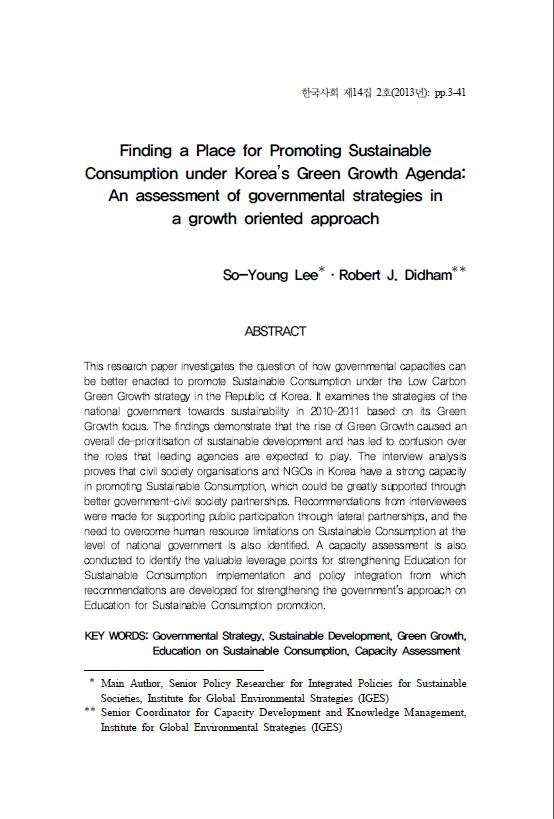In Korean Society
This research paper investigates the question of how governmental capacities can be better enacted to promote Sustainable Consumption under the Low Carbon Green Growth strategy in the Republic of Korea. It examines the strategies of the national government towards sustainability in 2010-2011 based on its Green Growth focus. The findings demonstrate...




